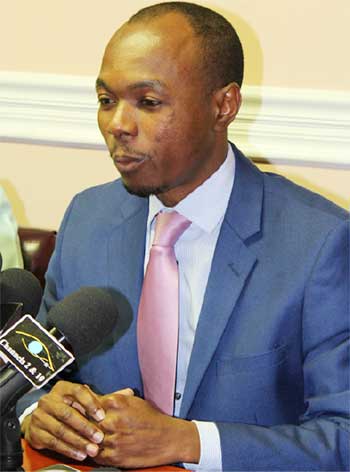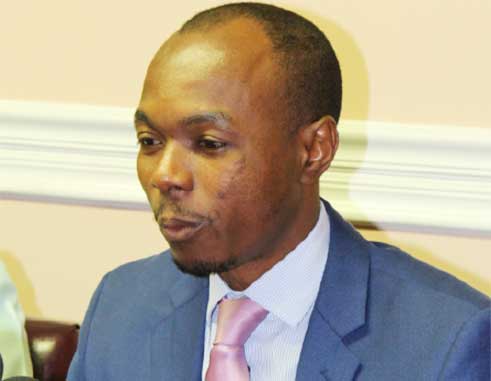A MEETING held last Friday between Information and Broadcasting Minister, Dominic Fedee, and management and staff of Radio St. Lucia (RSL) has set in motion a process that will deal with the radio station once and for all.

Fedee made that clear yesterday at a pre-Cabinet press briefing, stating that there are several options on the table for discussion, one being a merger of the station with the Government Information Service (GIS).
He promised to provide more detailed statements on the future of RSL.
“We discussed a number of areas as it pertains to the future of the radio station. We continue to dialogue via the board and the trade union,” Fedee said.
He added that dialogue with the various parties involved with the station has been very encouraging and was carried out in an environment of good camaraderie.
The government’s intention to deal with the radio station once and for all was made known by Prime Minister Allen Chastanet earlier this month during his 2017/2018 budget address.
Among his reasons was that the radio station was another State-affiliated entity that appears to have lost its way. He said the financial performance of RSL in recent years had been far from desirable as it continues to accumulate liabilities which could possibly be inherited by Government.
“As at March 31, 2015, the company’s accumulated losses amounted to $3,362,725 and the company also reported a loss of $515,497 in 2015. The company has failed to meet its statutory requirements by way of wage-related expenses. RSL owes the National Insurance Corporation $543,000 for unpaid employee contributions and owes government $231,000 in unpaid taxes. This is in addition to a significant accounts payable balance and contingent liabilities,” Chastanet said.
The Prime Minister noted that the annual government subvention of $417,636 to RSL was unable to meet the significant liabilities which are being accumulated by the station.
Said Chastanet: “Like the Marketing Board and the Fish Marketing Corporation, the factual matrix upon which RSL was established has changed. When RSL was established, there were few avenues for disseminating information to our citizens. The radio was the most widely used tool for mass media and there were very few other radio stations.
“The current climate is far different; the internet, television, cell phones have taken over in terms of communication. The airwaves are saturated with radio stations, and multiple avenues exist for government to get its message across to its citizens. We must therefore revisit the question of the role of RSL in this current climate.”
According to Chastanet, government will reorganize the GIS to more effectively disseminate government information and its programmes and that the company currently known as RSL will be closed, and the relevant programmes restructured to take advantage of the new technologies for information dissemination.
The station is presently still on-air and Fedee could not give a timeframe for its actual closure. Employees, he said, will be an essential part of the way forward.
“At the moment, I am very encouraged by those discussions we are having with the staff and those discussions are done very amicably, very cordially. Good sense is prevailing and that is very, very encouraging,” Fedee said.
RSL is presently owned by two private individuals and not by the government, as documents at the Registry of Companies indicate. Fedee explained this somewhat strange situation.
“We have also found a letter of intent to transfer the shares back to the government from those two individuals and so I think what has happened those documents were not filed. So if you went to the Company of Registrars, you will see (that) technically Radio St. Lucia would be owned by these two individuals. But my government is approaching this in good faith and in the best interest of the employees to ensure that whatever the outcome, it does not hurt the employees, does not rob them of anything that is due to them and it does not lose the humane side of the dialogue which is so important to the future of our country,” Fedee said.















How about scaling down the mission and refocus programming as an adult education and regular education delivery system………even the BBC has radio for said mission.